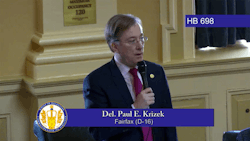
UPDATE: The Bundestag officially placed Germany's cannabis legalization bill on its legislative agenda for Feb. 21, with plans for a vote in the Finance Committee. This article was originally published Feb. 6, 2024.
After disagreements within the three parties that make up the German government coalition pushed the vote on a cannabis legalization bill to 2024, lawmakers have reached an agreement on the legislation, which they are expected to vote on later this month.
Germany’s initial plans to federally legalize adult-use cannabis leaked to the media in October 2022. The leaked “cornerstone paper,” which was being circulated among government officials at the time, stemmed from a monthslong inquiry by Burkhard Blienert, Germany’s commissioner on narcotic drugs.
German Health Minister Karl Lauterbach presented the cornerstone paper on the initial legalization proposal to Chancellor Olaf Scholz’s cabinet last fall and indicated that the government would only advance its plan if it received approval from the European Union.
Discussions between Berlin and the EU’s executive commission followed and ultimately resulted in German officials revising their approach to cannabis legalization. While the original legalization proposal would have allowed licensed shops to sell cannabis, a revised version would instead allow home cultivation and distribution through nonprofit “cannabis clubs.”
German officials in July revealed a draft bill that outlined the first pillar of a two-pillar approach to legalization. The bill would allow adults 18 and older to possess cannabis for personal use and grow up to three plants at home. The legislation would also establish the cannabis clubs, where members could receive a limited amount of cannabis for personal use.
The second pillar of legalization is expected to create regional pilot programs for commercial cannabis supply chains.
While the legalization bill was initially expected to pass the Bundestag and take effect before the end of 2023, a vote on the legislation was postponed until December as lawmakers continued tweaking the bill.
When December came around, however, the Bundestag dealt the bill another blow when lawmakers again delayed the vote due to disagreements over the details.
Last week, the leaders of Germany’s “Traffic Light Coalition,” made up of The Greens, the Social Democrat Party (SPD) and the Liberals, announced that they had reached a deal on the legislation, Forbes reported. A vote is expected later this month, with the law taking effect in April as initially planned.
The move would make Germany the third European Union member state to legalize cannabis for personal use, following Malta and Luxembourg.
Despite the news that government officials have united on the details of the legislation, some SPD members remain opposed, according to Forbes.
Sebastian Fiedler, for example, told German news outlet Der Spiegel that he plans to vote against cannabis legalization, which he said “leads to the decriminalization of dealers and pointless extra work for the police.”
Similarly, Sebastian Hartmann, the domestic policy spokesman for the SPD, told Zeit Online that he would not support cannabis policy reform and would not vote in favor of the proposed legislation.
“The coalition agreement originally provided for the controlled supply of cannabis in certified stores, but the current law shifts this supply to the private sector and thus to uncontrollability,” he said.
The agreed-upon bill could still face minor revisions to address the SPD’s concerns, Forbes reported, and the final Bundestag reading is expected the week of Feb. 19. The legislation will then advance to the Bundesrat for final approval.
If passed, cannabis possession and home grow will be legalized April 1, according to Forbes, and cannabis clubs will be permitted starting July 1.


























